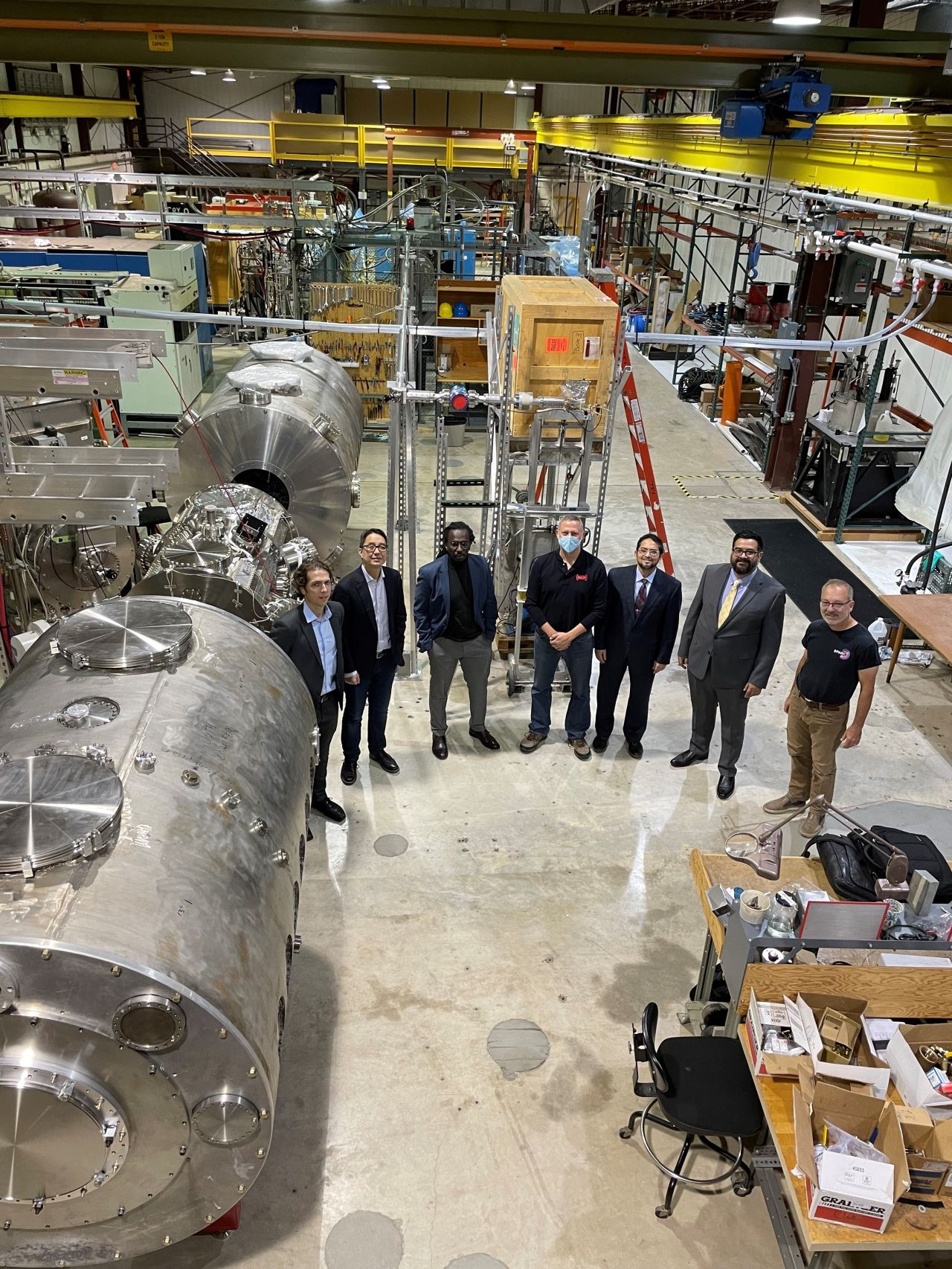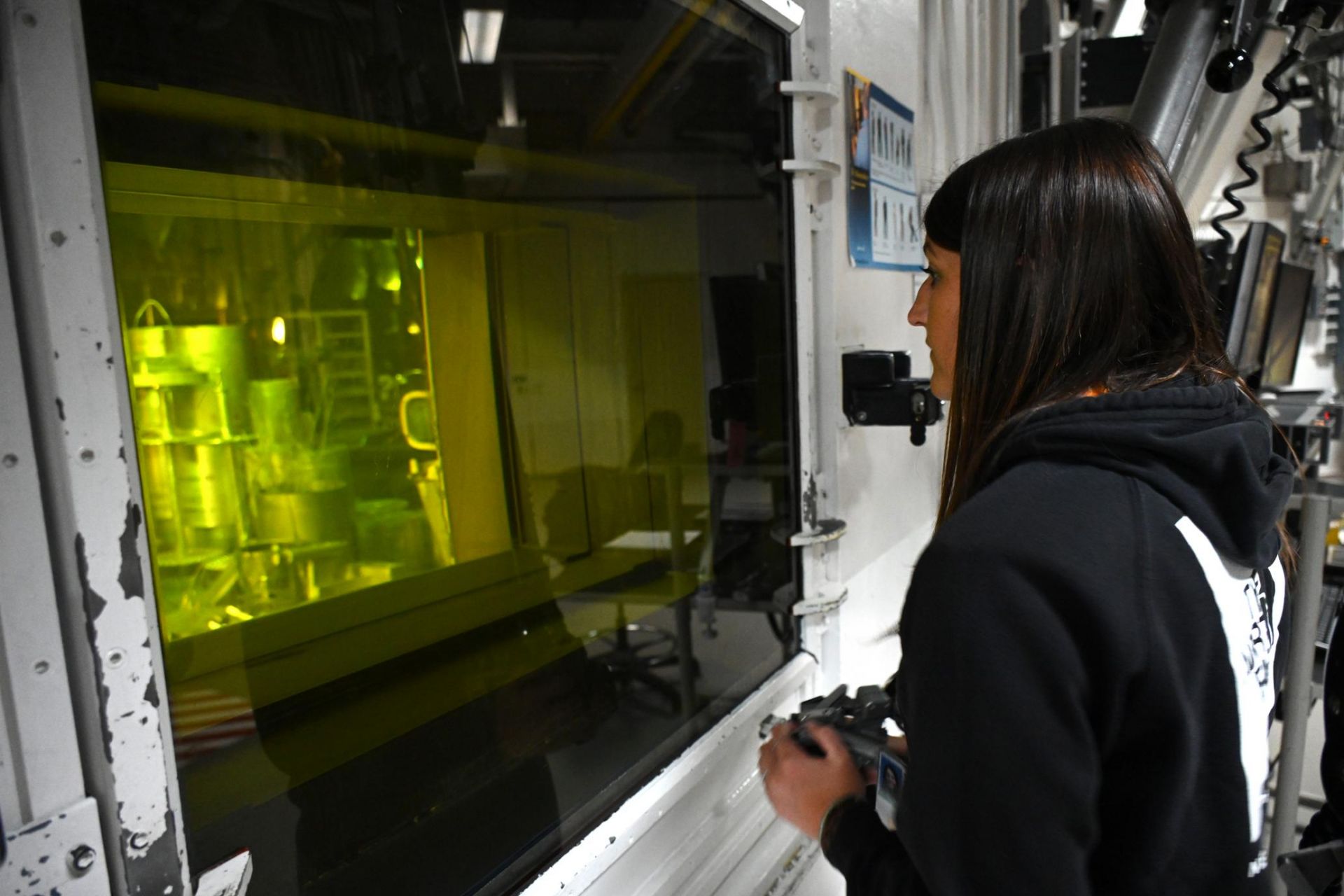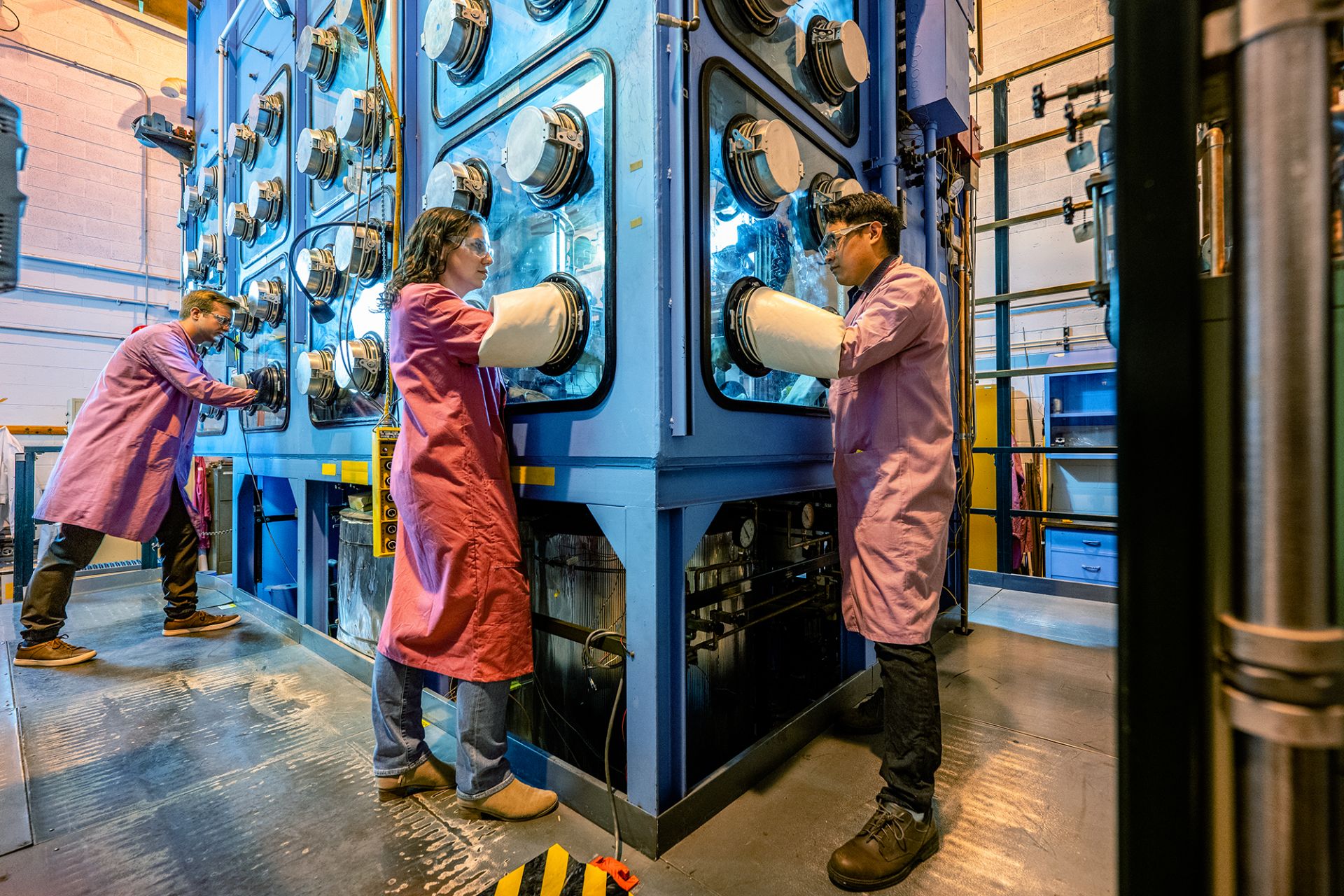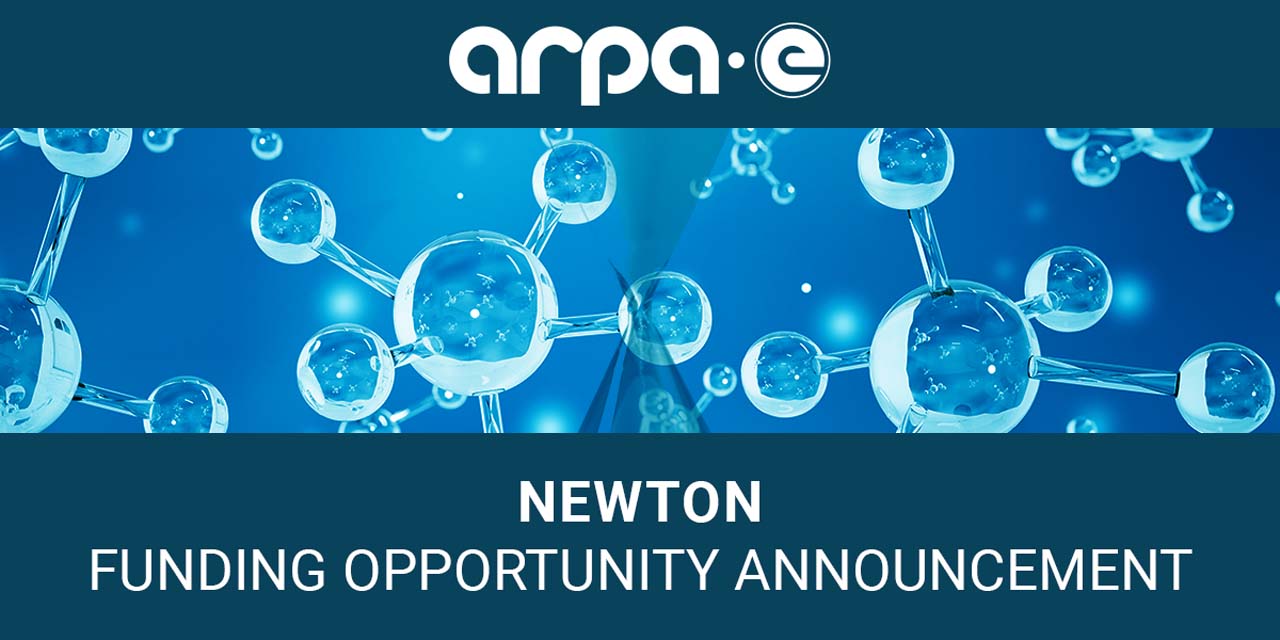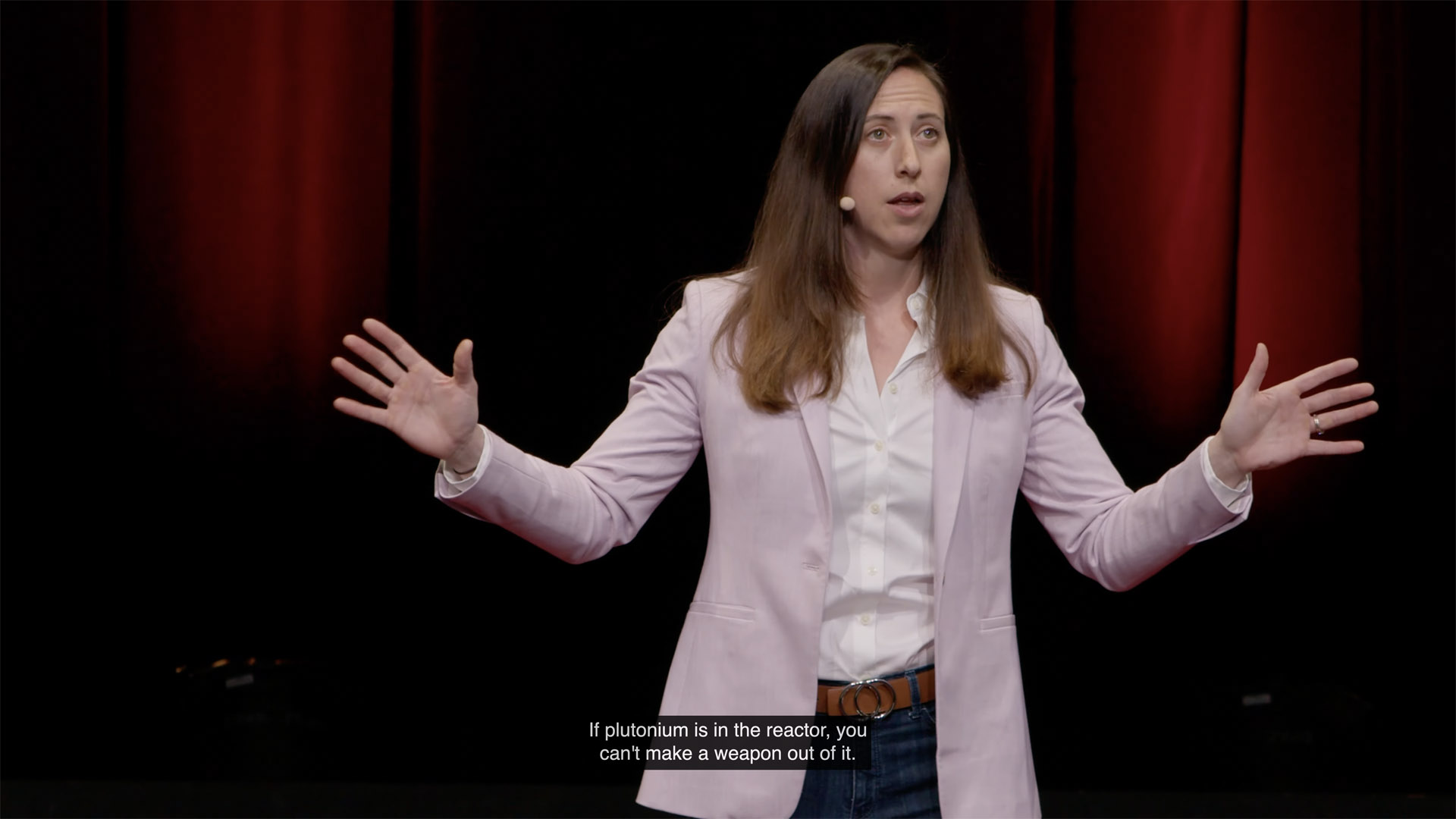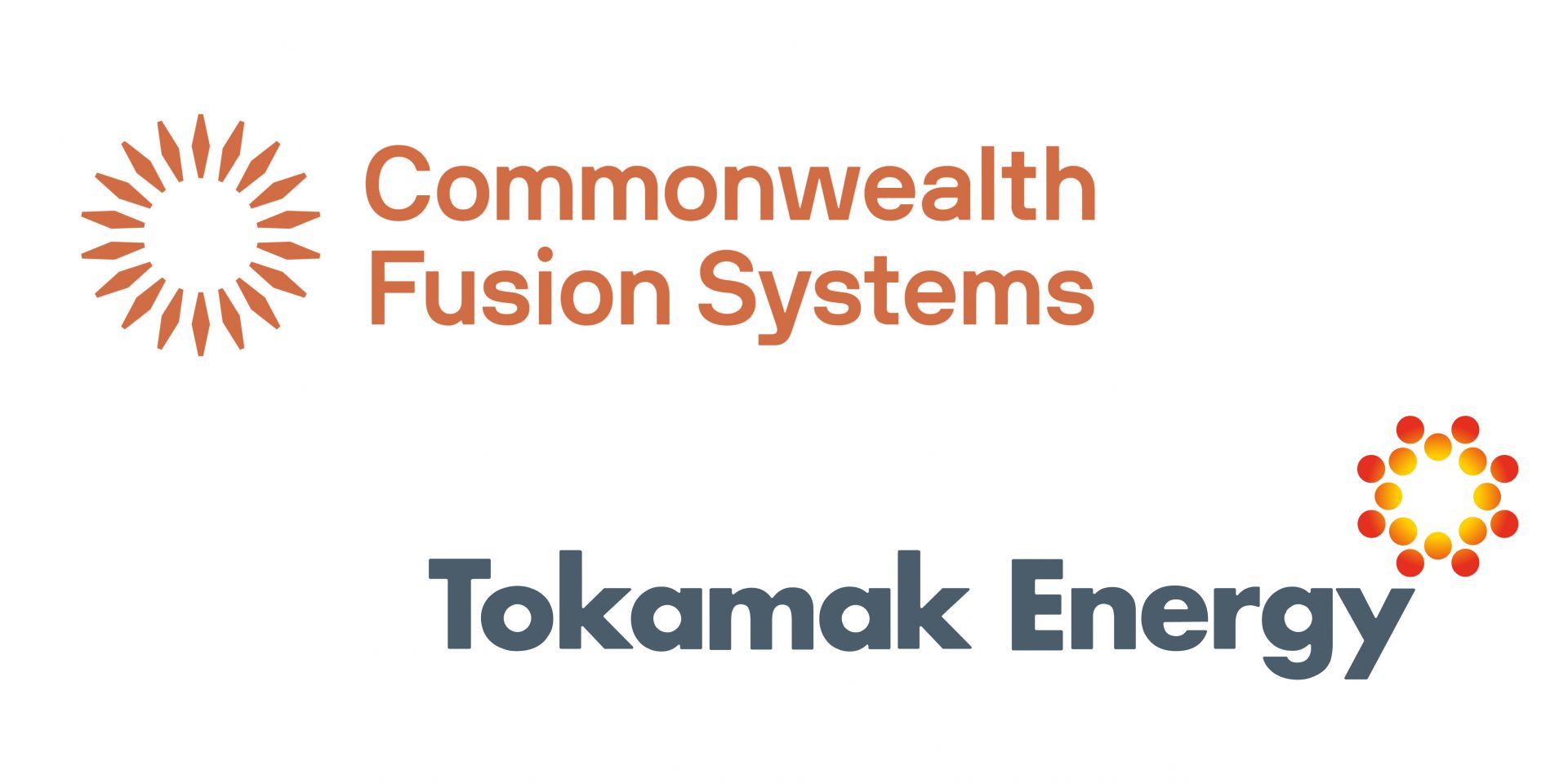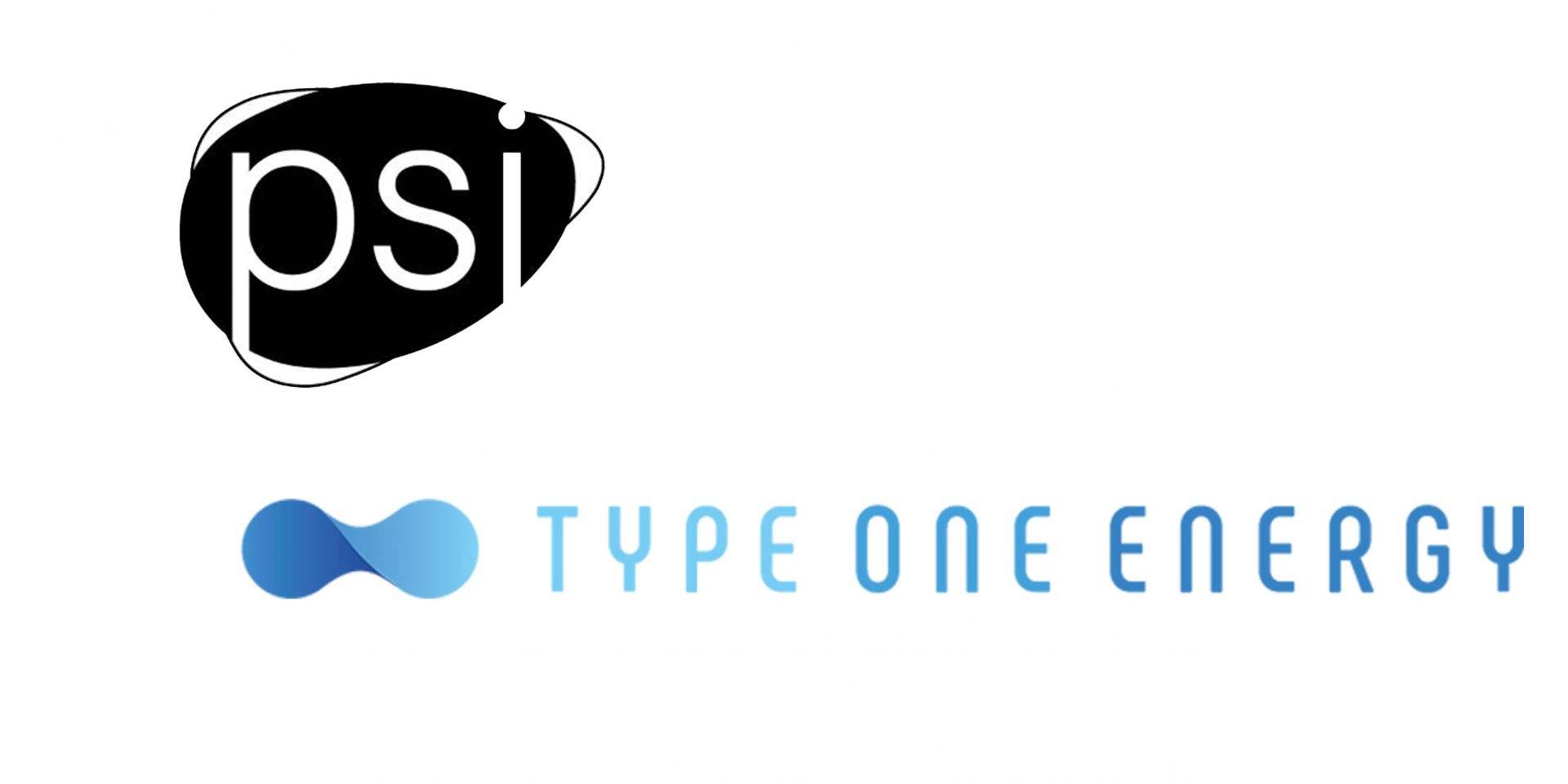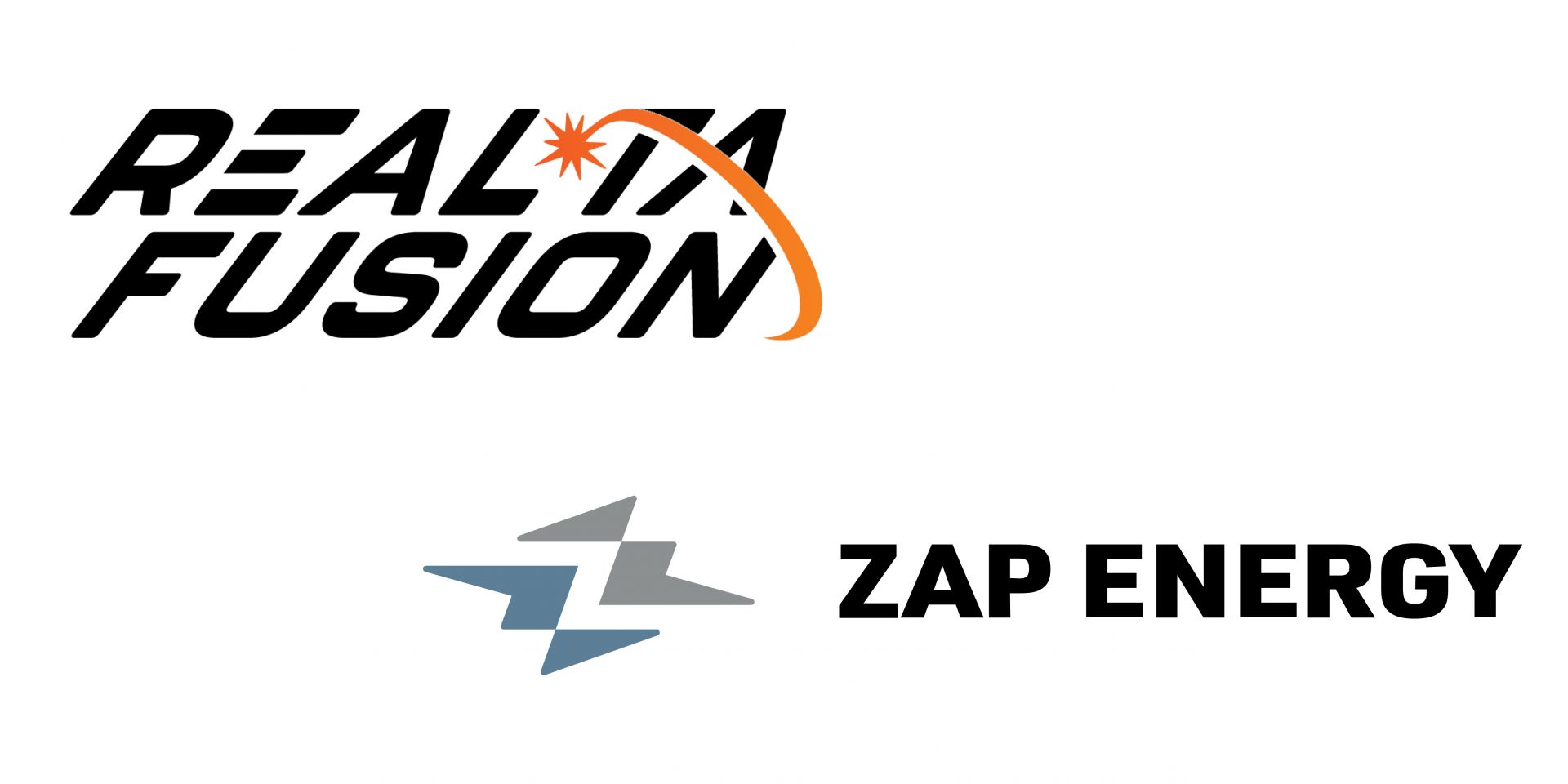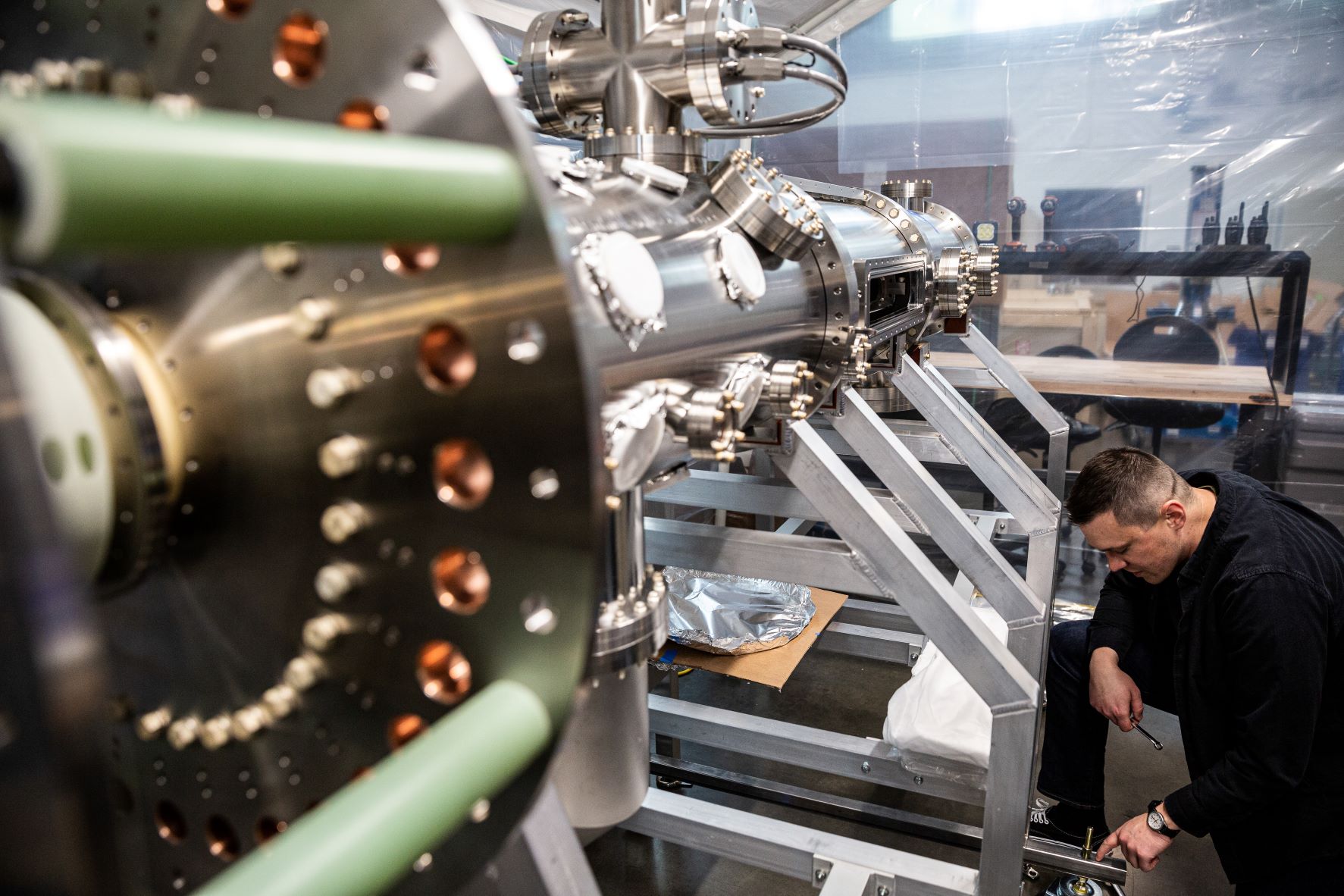Members of the UPWARDS technical advisory committee stand in front of a prototype universal canister system in 2024. (Photo: Deep Isolation)
Nuclear waste disposal technology company Deep Isolation Nuclear has announced the completion of a three-year project to manufacture, physically test, and validate a disposal-ready universal canister system (UCS) for spent nuclear fuel and high-level radioactive waste from advanced reactors.
Argonne physicist Michael Kelly loads a superconducting cavity into a large furnace. (Photo: ANL)
Argonne National Laboratory said it has secured just over $10 million from the Department of Energy’s Advanced Research Projects Agency–Energy (ARPA-E) for two research projects investigating the transmutation of spent nuclear fuel into less radioactive substances.
Technical advisory committee members in front of a full-scale universal nuclear waste canister prototype developed through ARPA-E’s UPWARDS program. (Photos: Deep Isolation)
At COP28, held in Dubai in 2023, a clear consensus emerged: Nuclear energy must be a cornerstone of the global clean energy transition. With electricity demand projected to soar as we decarbonize not just power but also industry, transport, and heat, the case for new nuclear is compelling. More than 20 countries committed to tripling global nuclear capacity by 2050. In the United States alone, the Department of Energy forecasts that the country’s current nuclear capacity could more than triple, adding 200 GW of new nuclear to the existing 95 GW by mid-century.
The Realta Fusion and ARPA-E team at the WHAM facilities in 2023. (Photo: DOE/ARPA-E)
TitletownTech, a venture capital firm formed out of a partnership between Microsoft and the Green Bay Packers, has invested in Realta Fusion, a private fusion startup company that was spun out of an ARPA-E-funded fusion project at the University of Wisconsin–Madison in 2022. Realta is developing modular, compact, magnetic mirror fusion energy generators as an economic, zero-carbon solution to power AI-driven infrastructure and other industrial applications. TitletownTech did not disclose the details of its investment.
Members of the UPWARDS technical advisory committee stand in front of a prototype universal canister system. (Photo: Deep Isolation)
Deep Isolation announced that it hosted its third technical workshop for the UPWARDS project, a Department of Energy Advanced Research Projects Agency-Energy (ARPA-E) initiative aimed at developing a universal canister system (UCS) for the disposal of radioactive waste streams from advanced reactors. The workshop, held at R-V Industries in Honey Brook, Pa., focused on the large-scale manufacturing and commercialization of the UCS.
At INL's Fuel Conditioning Facility, spent nuclear fuel material is being recycled into fuel for Oklo's commercial Aurora Powerhouse deployment at INL. (Photo: INL)
Oklo Inc. announced yesterday that a safety design report for the Aurora fuel fabrication facility the company plans to build at Idaho National Laboratory has the approval of the Department of Energy. At the facility, Oklo plans to use high-assay low-enriched uranium (HALEU) that has been recovered from used Experimental Breeder Reactor-II fuel to produce fuel for its first planned microreactor—dubbed Aurora—which is also set for deployment at INL.
Engineers in Argonne’s Chemical and Fuel Cycle Technologies Division. (Photo: Argonne National Laboratory)
Oklo Inc. announced that it has completed the first end-to-end demonstration of its advanced fuel recycling process as part of an ongoing $5 million project in collaboration with Argonne and Idaho National Laboratories. Oklo’s goal: scaling up its fuel recycling capabilities to deploy a commercial-scale recycling facility that would increase advanced reactor fuel supplies and enhance fuel cost effectiveness for its planned sodium fast reactors.
Jenifer Shafer during her TEDx talk on nuclear energy. (Screen capture: YouTube)
Jenifer Shafer, the associate director for technology at the Advanced Research Projects Agency–Energy (ARPA-E), recently delivered a TEDx talk in which she explained the basic concepts of nuclear waste recycling, including related nonproliferation issues. As Shafer wrote in a post on LinkedIn, “In my talk, I explored the misconceptions surrounding nuclear waste and discuss[ed] the possible emerging opportunities regarding nuclear fuel recycling. It’s crucial that we understand the real potential of nuclear energy, and leveraging our ‘nuclear treasure,’ in shaping a sustainable future.”
The waste management panel, from left: moderator Todd Allen, Fred Dilger of Nevada, Katrina McMurrian of the NWSC, the DOE’s Paul Murray, Jenifer Shafer of ARPA-E, and Kuhika Gupta of the University of Oklahoma. (Photo: ANS)
With increasing demand for clean, reliable, and safe sources of energy, the conversation around nuclear energy is changing. And so too is the conversation around nuclear waste, even as the country struggles to find a path for the disposal of its spent nuclear fuel and high-level radioactive waste. From community engagement, to recycling, to existing success around other forms of nuclear waste management, the conversation around nuclear waste has many different angles, and an executive session of the American Nuclear Society’s 2024 Annual Conference in Las Vegas aimed to delve into some of those discussions.
A bright flash of light from a FuZE (Fusion Z-pinch Experiment) plasma. (Photo: Zap Energy)
Zap Energy announced April 23 that it has reached 1-3 keV plasma electron temperatures—roughly the equivalent of 11 to 37 million degrees Celsius—using its sheared-flow-stabilized Z-pinch approach to fusion. Reaching temperatures above that of the sun’s core (which is 10 million degrees Celsius temperature) is just one hurdle required before any fusion confinement concept can realistically pursue net gain and fusion energy.
X-energy employees gathered for a ribbon-cutting at its new training facility, Plant Support Center. (Photo: X-energy)
X-energy has opened a regional operations and training center aimed at supporting future deployment of its advanced modular nuclear reactor fleet and the operators who will run it.
The first plasmas created in FuZE-Q, shown here during assembly, represent a key step towards fusion experiments with net energy output. (Photo: Zap Energy)
Zap Energy has created the first plasmas in its FuZE-Q machine—the company’s fourth prototype machine and the one it hopes will demonstrate a net energy gain from a Z-pinch fusion plasma just one millimeter in diameter and half a meter long. Zap Energy announced that engineering achievement and the close of $160 million in Series C funding in late June.
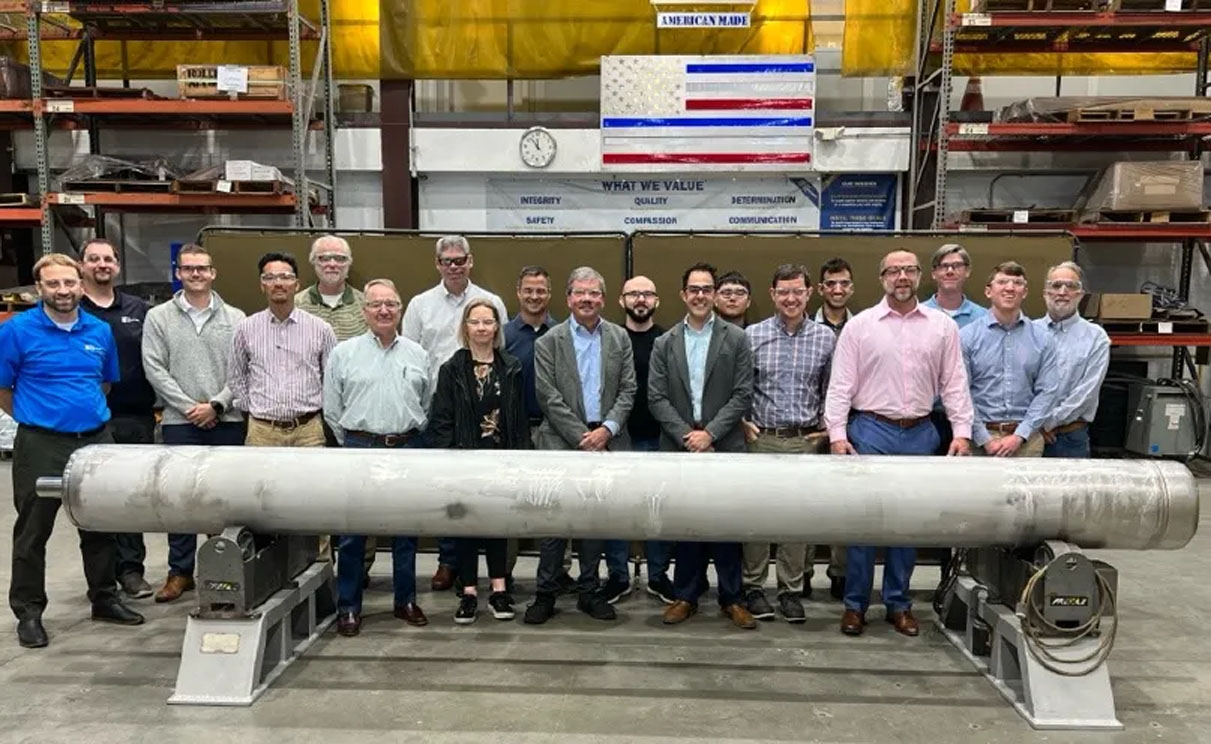



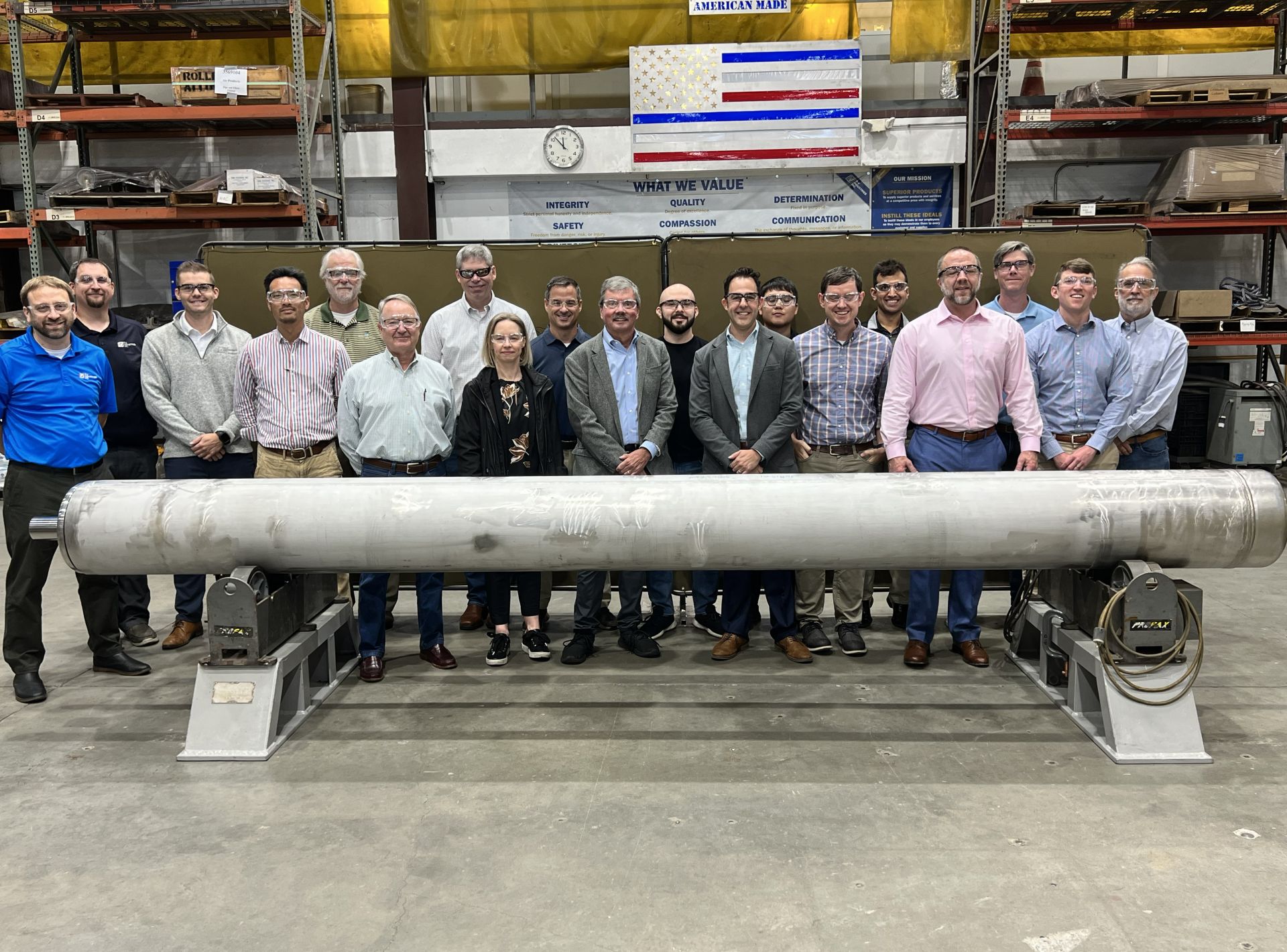 rotated.jpg)
